Grow Native Butterfly Weed for Monarchs
Updated: Apr. 18, 2024
Butterfly weed is a perfect milkweed variety for flower gardens. Here's why you should add this monarch host plant to your yard.
On This Page
Native Butterfly Weed Care
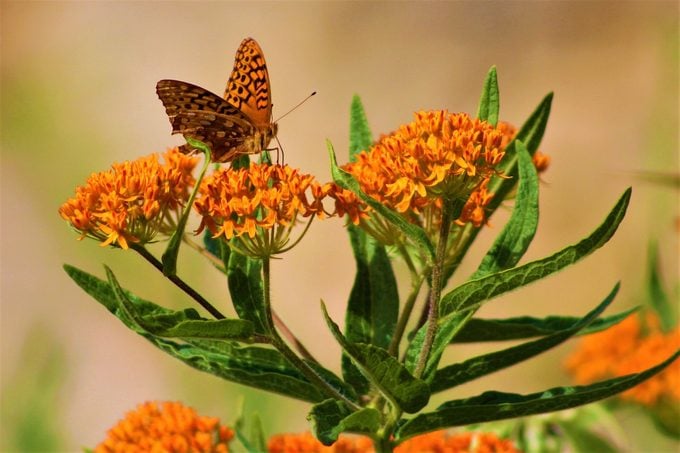
- Common name: Butterfly weed
- Scientific name: Asclepias tuberosa
- Growing zones: 3 to 9
- Light needs: Full sun
- Soil: Well-draining
- Size: Two to three feet tall and equally as wide
Check out the ultimate guide to growing milkweed plants for monarch butterflies.
Is Butterfly Weed a Type of Milkweed?
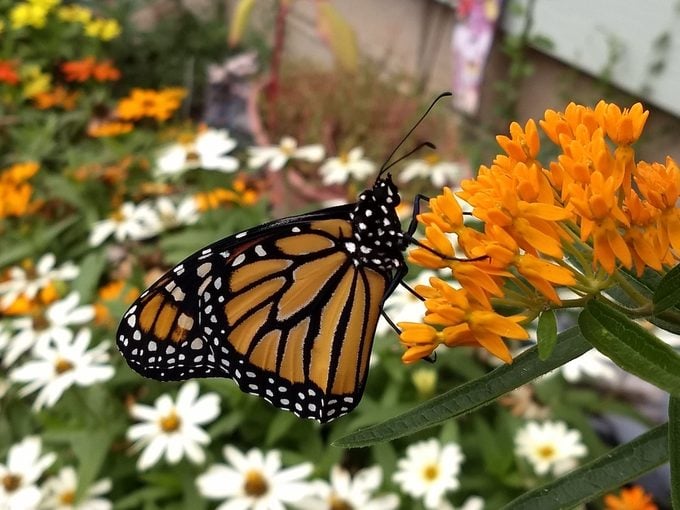
Butterfly weed is part of the milkweed family. The Monarch Joint Venture recommends this native milkweed for gardeners in the northeast, midwest and southeast regions.
“I’ve read that milkweed is the only host plant for monarch caterpillars. I don’t have milkweed, but I do have butterfly weed. I came upon about a dozen monarch caterpillars munching on the leaves. Is this unusual?” asks Birds & Blooms reader Charlotte Hense of East Troy, Wisconsin.
Gardening expert Melinda Myers says, “Monarch caterpillars will dine on all species of milkweeds, including butterfly weed. This milkweed species thrives in full sun and well-draining soil. It is also less aggressive than common milkweed, making it a good choice for smaller landscapes. Other milkweeds such as red, swamp, showy, whorled and green are also good choices. The Xerces Society has helpful guides for selecting the best milkweed plants for your region.
Benefits of Growing Butterfly Weed
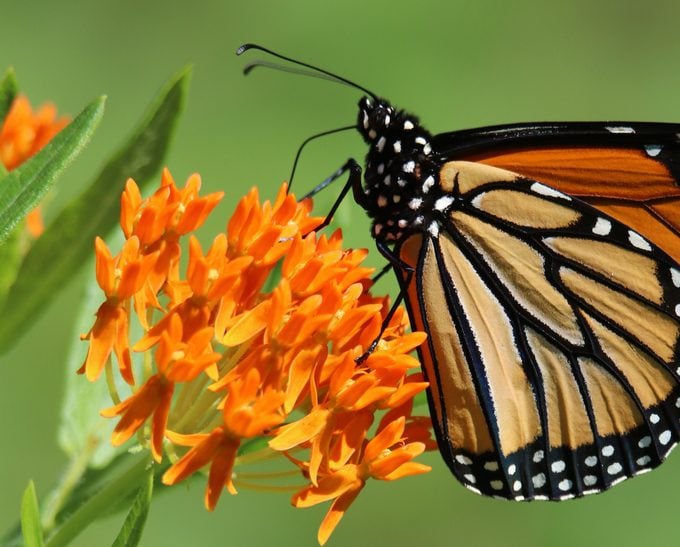
It’s easy to see why gardeners would choose to add this plant to their yards. This flowering perennial is a magnet for pollinators. Its gorgeous orange blooms persist through the summer, and it’s a favorite for cut flower gardens or dried flower arrangements. When planted in a meadow setting, it will naturalize and come back year after year, however it does not spread aggressively.
It’s a relatively low-maintenance plant as well, and it grows in poor, dry soil and even on slopes. Handling extreme conditions with ease, it’s drought tolerant as well as cold hardy. It’s usually deer-resistant in addition to being disease-free. It doesn’t produce as much milk sap as other milkweeds, which makes it ideal for gardeners with sensitive skin and pets.
Learn how to save and plant milkweed seeds from pods.
Does Butterfly Weed Attract Pollinators?
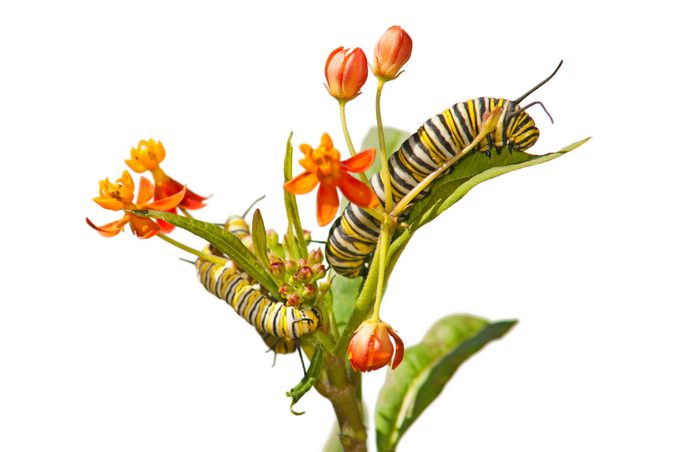
Increased pollinator presence is likely the biggest benefit of adding this plant to one’s garden. Native butterfly weed brings in plenty of good bugs! As a member of the butterfly milkweed family, it’s a monarch butterfly host plant. It’ll draw in black swallowtail butterflies, too, as well as other pollinators such as bees.
Learn how to get rid of aphids on milkweed plants.
Butterfly Weed Cultivars to Grow
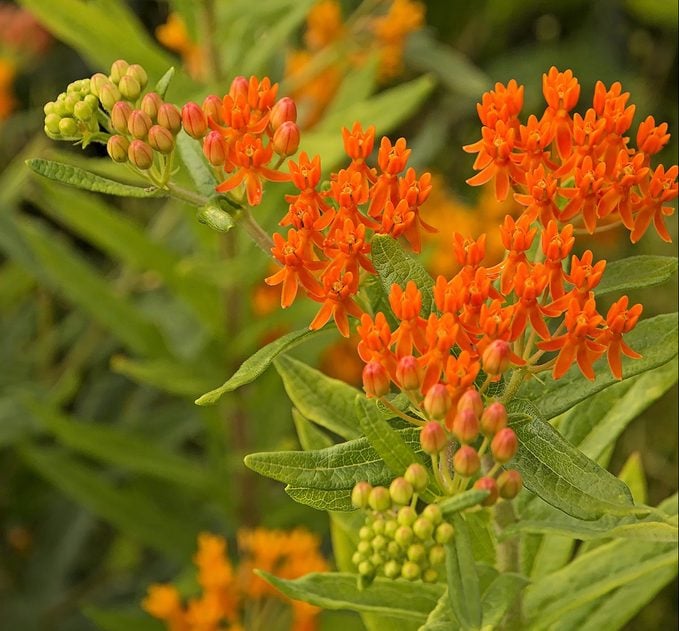
When it comes to planting native butterfly weed, you have plenty of choices. It’s available seed form, as bare milkweed roots, or as live plants in gallon-size containers. You can order seeds or plants online, or you can stop by your local garden center.
One cultivar to try is Gay Butterflies milkweed (zones 4 to 11). Grown by Monrovia, it showcases blooms from mid-to-late summer with fiery gold, yellow and scarlet flower clusters.
For golden flowers, look for the Hello Yellow cultivar.
Next, discover more monarch butterfly flowers you should grow.
About the Expert
Melinda Myers is the official gardening expert for Birds & Blooms. She is a TV/radio host, author and columnist who has written more than 20 gardening books. Melinda earned a master’s degree in horticulture from the University of Wisconsin-Madison.
Sources
- Monarch Joint Venture
- The Xerces Society for Invertebrate Conservation
- Monrovia
- Walters Gardens, Inc.
Why Trust Us
For nearly 30 years, Birds & Blooms, a Trusted Media Brand, has been inspiring readers to have a lifelong love of birding, gardening and nature. We are the #1 bird and garden magazine in North America and a trusted online resource for over 15 million outdoor enthusiasts annually. Our library of thousands of informative articles and how-tos has been written by trusted journalists and fact-checked by bird and garden experts for accuracy. In addition to our staff of experienced gardeners and bird-watchers, we hire individuals who have years of education and hands-on experience with birding, bird feeding, gardening, butterflies, bugs and more. Learn more about Birds & Blooms, our field editor program, and our submission guidelines.




















